When it comes to principal-based media trading, AKA arbitrage, “we can argue about the pros and cons but collectively [marketers] are saying that they kind of accept, if not sometimes prefer, that model,” says Madison and Wall founder and one-time WPP global business intelligence chief Brian Wieser. It’s no coincidence that two of the “most aggressive” proponents of buying ad inventory from media owners and on-selling it to clients with handsome markups saw their respective media businesses notch double-digit growth in 2023. Publicis and Omnicom also have the most bullish growth forecasts for 2024. Yet their broader business strategies and models are almost polar opposites and Wieser sees a structural fault line widening across the major holdcos – unified businesses that sideline individual agency brands like Publicis and Dentsu versus the traditional multi-brand model at WPP, IPG and Omnicom. Both can work, says Wieser, but he thinks those with fewer silos are “more likely to thrive” and suggests very few marketers still care about conflict, one of the original reasons for holdcos running lots of similar agencies. Dentsu is tracking closer to Publicis on agency brand consolidation but the Japanese firm hasn’t executed like the French. One positive for Dentsu, per Wieser, is “it’s hard to imagine it getting any worse”. Regardless of the model, he sees a single key differentiator in determining holdco winners and losers as IT services firms streak ahead and the big platforms use generative AI to eat further into agency turf: Investment ambition, or lack thereof.




